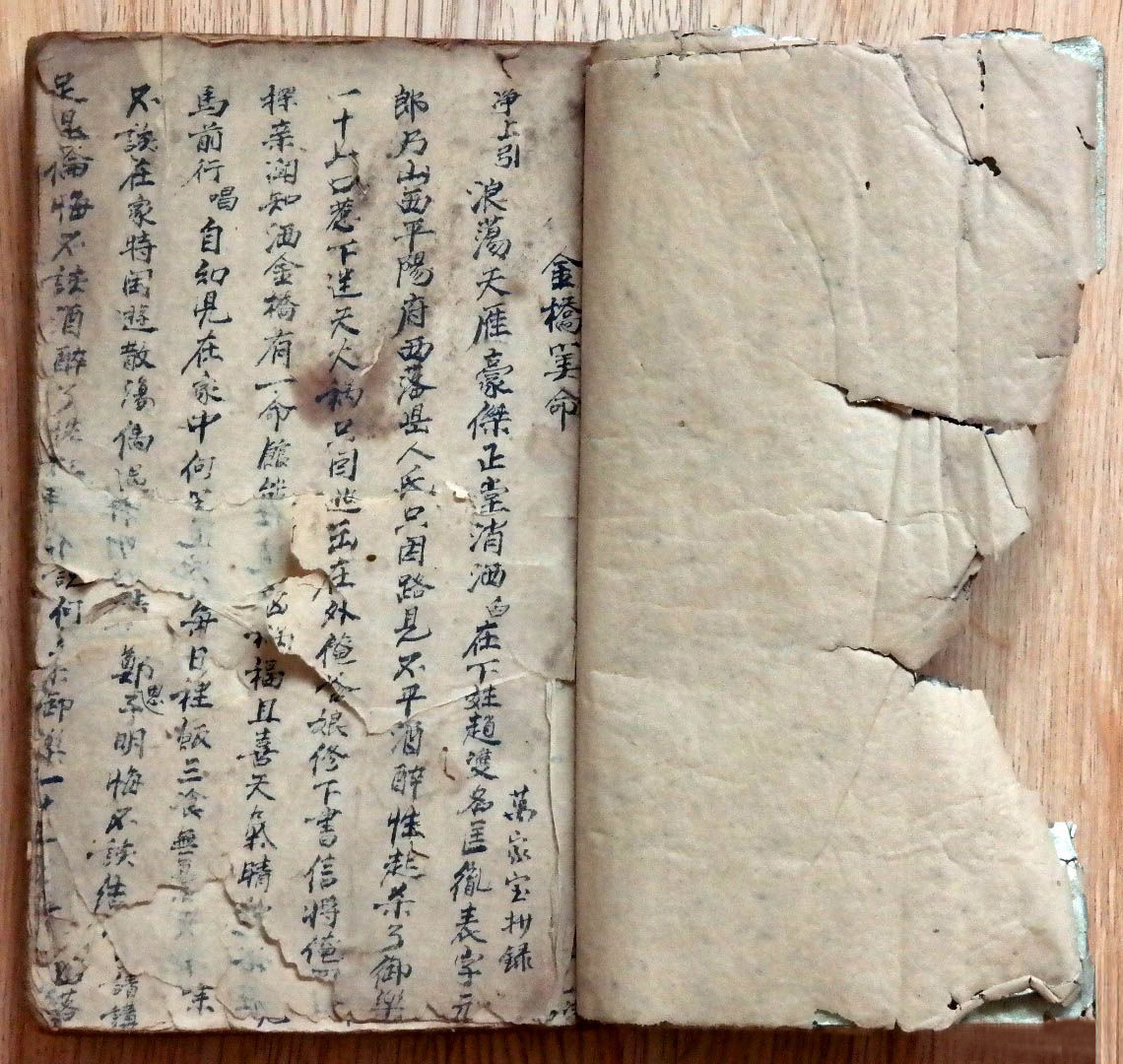Narratives in traditional operas influenced by historical texts

An old script book for a traditional opera
The scripts for traditional operas are often said to have been adapted from music, dances, poetry, novels and other art genres. People rarely talk about their relationships with historical texts. However, as far as their narrative characteristics are concerned, traditional operas are deeply influenced by historical works. This influence can be reflected especially in the handling of space and time in the scripts.
The contrast between Chinese writers’ handling of time and space and those of Western playwrights is apparent. Chinese operas often adopt a linear time structure, namely to arrange the plot according to the sequence of events. Therefore, one opera can span a time range of several years or even several decades. In contrast, Western playwrights often squeeze the time span of a drama while employing a “retrospective” structure, in which the characters in the present look back. In terms of the handling of space, events in Western operas are often confined to one site, while in Chinese operas, the sites change with time.
Take The Orphan of Zhao as an example. The opera starts with the birth of Zhao Wu, the orphan and develops to the final moments when he is paying off old scores and undoing the wrongs inflicted upon him. The whole opera spans a period of more than 20 years. This long time span in an opera is almost unacceptable in Western operas. Therefore, in Voltaire’s adaptation of the opera, he compressed the whole play into one day and night.
People can have different interpretations of why traditional operas acquired such a method of handling time and space. Some say they were influenced by music, dance, architecture, poems and other genres of arts and literature. Others see them as more related to ancient people’s concepts of time, space and the universe.
But they all fail to consider the relevance of historical texts in this scenario, especially in narrative methods. Many distinguished figures in literature, including Liang Qichao (1873-1929) and Fan Wenlan (1893-1969), emphasized the status of history and the science of history in traditional Chinese culture, saying they are the most prosperous and important among all fields of knowledge. Therefore, there is a tradition of revering, emphasizing and compiling history in China.
Traditional historical books are diverse in their styles of compilation, as manifested in jizhuanti (history presented in series of biographies), biannianti (annalistic style in historiography), and jishibenmoti (history presented in separate accounts of important events). Though different in styles, when it comes to an event, historians mainly record in a chronological order. Flashbacks, interludes and other methods are employed occasionally, but only as a supplement to the chronological order.
Li Yihui is from the College of Liberal Arts at Heilongjiang University.
